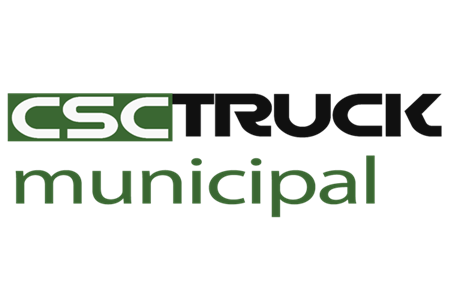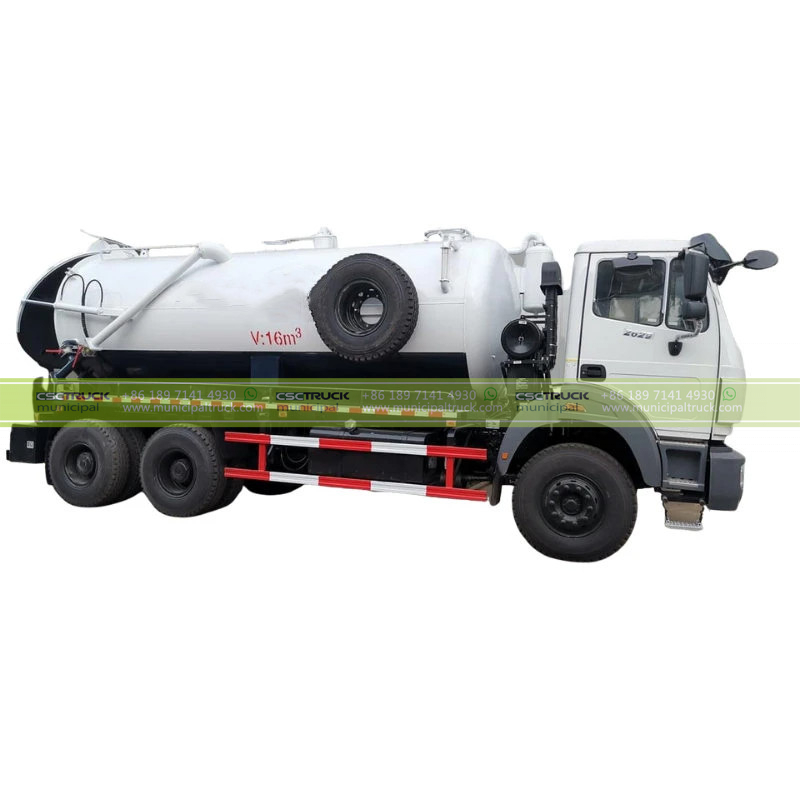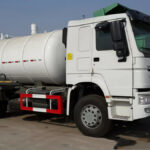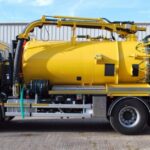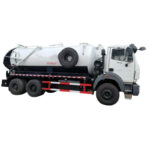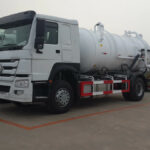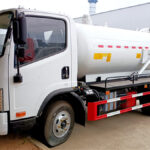Confronting one of the planet’s most severe water scarcity challenges head-on, the Hashemite Kingdom of Jordan, through the capital city of Amman, has taken a decisive leap forward in wastewater infrastructure efficiency with the formal commissioning of a cutting-edge fleet of specialized sludge collector trucks. This strategic enhancement to the Greater Amman Municipality’s (GAM) sanitation arsenal signifies a critical advancement in optimizing the resource recovery potential from wastewater treatment processes, thereby conserving precious freshwater resources and bolstering the city’s resilience against drought and climate pressures. The arid nation, ranked among the world’s most water-deprived countries, relies heavily on meticulously managing every drop, making the effective treatment and reuse of wastewater not merely an environmental priority but an absolute necessity for national water security and sustainable urban development in the face of burgeoning population demands and limited natural replenishment of aquifers.
The newly deployed sludge collector trucks, acquired under a significant contract between CSCTRUCK Municipal Branch and a leading local infrastructure partner, represent a quantum leap in operational capability for Amman’s wastewater treatment plants (WWTPs), particularly the strategically vital Zai Water Treatment Plant. Engineered specifically for the arduous task of transporting semi-solid biosolids – the nutrient-rich residual matter extracted during the sewage purification process – these vehicles feature robust vacuum systems, significantly enhanced tank capacity, and corrosion-resistant materials capable of withstanding the highly abrasive and chemically challenging nature of dewatered sludge over prolonged operational cycles. Their introduction directly tackles a persistent logistical bottleneck within the sludge management chain, where inefficient removal previously risked treatment process backups, potential environmental hazards from overflow, and crucially, delayed processing of this valuable by-product into safe agricultural compost or alternative energy sources like biogas, hindering the circular economy approach essential for maximizing resource efficiency in a water-scarce context.
Addressing the Core Challenge: Water Scarcity and Amman’s Wastewater Imperative
Jordan’s existential struggle with chronic water shortage is exacerbated by climate change, population growth, and limited conventional water sources, compelling the nation to pioneer non-traditional water resource development, with treated wastewater reuse forming an indispensable pillar of this strategy, particularly for non-potable agricultural irrigation and industrial applications. Amman, as the densely populated capital bearing the brunt of demand, has invested substantially in expanding and upgrading its WWTP network over decades, transforming sewage from a waste burden into a strategic water asset; however, the efficiency of these sophisticated treatment facilities hinges entirely on seamless downstream management of the solid residuals they generate. Historically, the collection and transportation phase of dewatered sludge presented significant operational hurdles, relying on aging or undersized equipment prone to breakdowns, limited capacity leading to frequent trips, and logistical delays that strained plant operations and increased the risk of onsite storage complications, thereby undermining the full potential of the treatment investment and the valuable reclaimed water it produces for alleviating aquifer stress.
The New Fleet: Engineering Efficiency and Sustainability
Immediate Impact on Plant Operations and Resource Recovery
The deployment of these state-of-the-art sludge collector trucks delivers an immediate and tangible boost to operational resilience across Amman’s WWTPs. Their significantly larger tank volumes drastically reduce the number of trips required to transport the daily sludge output to designated composting facilities or land application sites, translating directly into reduced fuel consumption, lower greenhouse gas emissions, and minimized traffic disruption around treatment plants situated within or near urban zones. Furthermore, their superior vacuum power and reliability engineered design ensure swift and reliable sludge evacuation from holding hoppers, preventing dangerous accumulation that could hinder continuous treatment processes and safeguarding the consistent production of high-quality treated effluent suitable for safe reuse; this enhanced reliability is paramount for maintaining uninterrupted operations critical for public health protection and water resource generation in a region where system failures carry severe consequences.
Technical Specifications: Built for Amman’s Rigorous Demands
These purpose-built sludge transporters feature hardened steel alloy tanks treated with specialized epoxy-phenolic linings providing exceptional resistance to hydrogen sulfide corrosion and abrasive wear, significantly extending service life and reducing maintenance downtime compared to previous models. High-torque, negative displacement vacuum pumps generate immense suction power capable of efficiently handling sludges with varying solids content (typically 15-25% dry solids), while advanced filtration traps ensure only solids enter the tank, protecting the pump from damage. The chassis and hydraulic systems are reinforced to withstand Amman’s unique combination of heavy urban loads and demanding terrain, featuring automated safety interlocks, real-time tank level monitoring, and ergonomic operator controls designed for safety and efficiency during the demanding loading and unloading cycles performed multiple times daily under harsh environmental conditions.
Maintenance, Partnership, and Long-Term Sustainability
Crucially, the contract with CSCTRUCK Municipal Branch and their prominent local partner includes a comprehensive technical support and training package, ensuring GAM personnel possess the expertise for optimal operation and preventative maintenance, thereby maximizing fleet longevity and minimizing lifecycle costs. The provision of genuine spare parts and dedicated local technical support guarantees rapid response to any operational issues, minimizing potential disruptions to the critical sludge removal schedule. This partnership model fosters local capacity building and ensures the long-term sustainability of the investment, aligning perfectly with Jordan’s broader goals of enhancing domestic technical expertise in environmental management. The enhanced efficiency brought by this modern sewage truck fleet directly supports GAM’s objectives of increasing the volume and reliability of treated wastewater allocated for agriculture, reducing pressure on scarce freshwater resources, and advancing the circular water economy. The reliability and capacity of these new sewer cleaner trucks are pivotal in closing the loop on Amman’s water management, transforming waste into a secure resource for the arid future.
